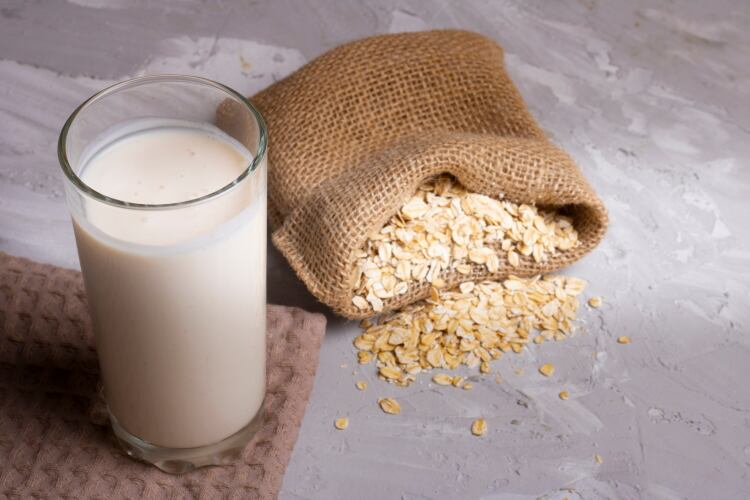The popularity of plant-based milk alternatives has pushed the global oat-based milk market into rapid expansion. The segment, which was valued at US$155m in 2018, climbed to a value of US$2.23bn in 2020. According to Grand View Research, the oat milk market will grow at CAGR 14.2% to 2028, growing at a faster rate than soy, the market-share leader among plant-based beverages.
Part of the appeal of oat-based milk lies in its fuller, creamier texture compared to other alt milks; a flavor profile not entirely dissimilar to dairy milk, and environmental credentials that are hard to beat even by several other plant-based alternatives.
Yet, production of 1L of oat milk still requires around 48L of water compared to 28L for soy, whilst the process of hydrolysis through which the beverage is developed requires two distinct stages – liquefaction, which involves breaking down oat starches into dextrins, and saccharification, where the dextrins are then broken down further into glucose. The two processes typically require different temperatures and can take around three hours in total, not counting recovery time.
But a new enzyme developed by DSM can complete the two processes in a single step, reducing hydrolysis time by 30%. Delvo Plant Go, part of the company’s enzyme portfolio, has been specifically designed for oat-based drinks manufacture and cannot be used for developing other dairy milk alternatives. It doesn’t impact the taste or texture of the final product – particularly important to manufacturers, who have to carefully choose the right enzyme or enzyme combinations as to not adversely affect beverage traits such as viscosity, mouthfeel and flavor in oat beverages. The new solution also supports organic and GMO-free formulations.
“The enzyme solution can be incorporated into existing manufacturing processes and removes the need for the oat solution to be heated and maintained at 70°C for liquefication, then cooled and maintained at 50°C for saccharification,” explained Ben Rutten, Global Business Manager, Milk & Plant-based Dairy Alternatives at DSM. “With Delvo Plant Go, manufacturers can carry out the whole hydrolysis process in a single step, at a temperature of 60°C - reducing the total time from three to two hours.”
The improvements results in increased capacity or reduced costs - something that is particularly important given the current volatility in the energy market, he argued. Pressed on what a typical cost saving could be for a producer using DSM’s new enzyme, Rutten said that this was ‘difficult’ to estimate ‘due to the number of variables involved and how volatile costs are at the moment’.
“We understand the issues that matter most to manufacturers, which is why our team is ready to work together with our customers to determine the most efficient set-up, including the best product and production specifics to suit the individual application,” he told us. “Savings on energy, water and time can be realized quickly but perhaps most importantly, production capacity will increase and enable producers to keep up with the growing demand for oat-based drinks - without impacting the taste or texture of the final product.”
Delvo Plant Go is available now worldwide and forms part of DSM’s combined portfolio for plant-based dairy alternatives, which also includes stabilizers, taste modulators, flavors, sweeteners, nutritional premixes, proteins and color solutions.
“The oat-based dairy alternatives category is in a sustained period of high growth. Now is the right time for producers to simplify their production processes to keep pace with this fast-moving market,” Rutten concluded.
“While consumer demand for oat-based products is growing, the category isn’t immune to the current difficulties around volatile energy prices and the constant pressure to deliver the delicious, nutritious and sustainably produced products consumers love. This is why we set out to not only save producers time, but also enable energy, and water savings. Combined with our wider portfolio for plant-based dairy alternatives, producers can enjoy it all without compromising on taste, texture, health or sustainability.”

